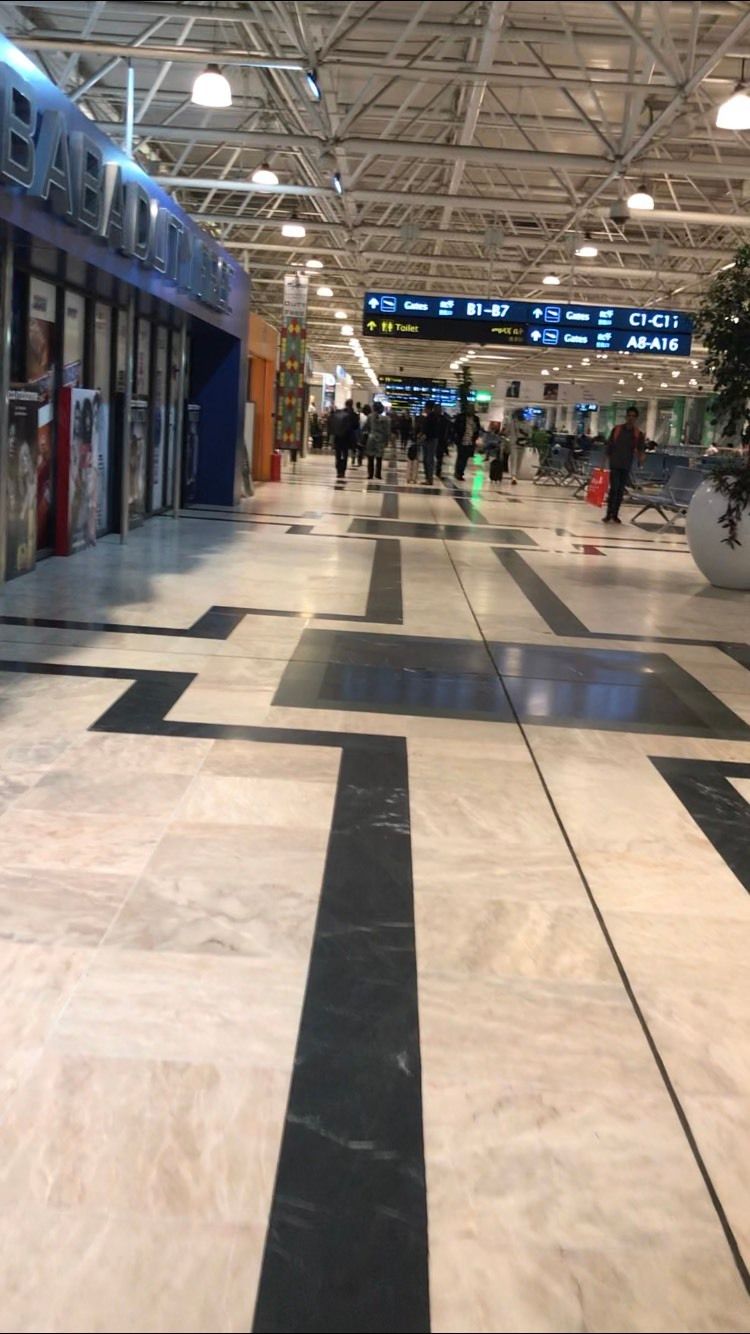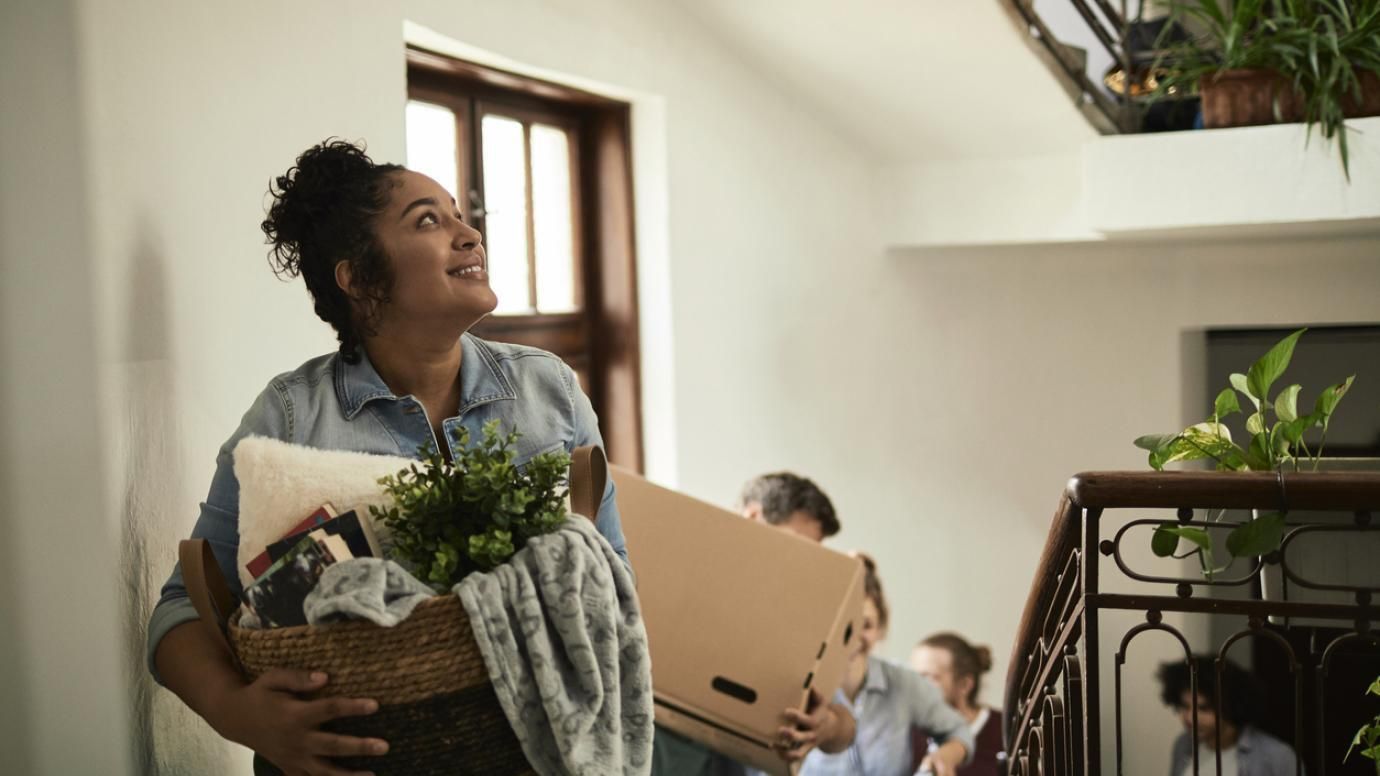
Source: UK Educational Services
The aspiration to live and study abroad is a common desire among today’s youth, driven by a multitude of factors. Primary motivations stem from the inadequacy of educational facilities in their home country and the need to advance their academic pursuits. Additionally, their desire is fueled by the yearning to gain independence and self-sufficiency, as living abroad often entails navigating life’s challenges on one’s own. Beyond that, the allure of experiencing diverse cultures, savoring a variety of cuisines, forging connections with people from different backgrounds, and many other enticing prospects contribute to this widespread yearning.
All these things are exciting and indeed are part of the journey, but they often distract us from the real hardship that comes with being an international student in a different continent. The life of an international student is often romanticized and the videos we watch on social media platforms are only the smallest part of the journey, I am here to tell you the truth, the ugly truth.
Emotional Rollercoaster
When I first got my acceptance I was very happy, excited, and then going through the visa process, document authentication, organization, and things of that sort was very stressful. One thing I learned is it is beneficial to network with the other students at the embassy as they may have information that you may not know about; that was how it was in my case and that is how I met my good friend who traveled to Venice.
Till I got the visa, I was excited and thinking about my life in Italy, living alone and everything but once I got the visa, things got real. As the oldest and only daughter of my family, I felt a surge of emotions take over me; how am I going to leave my parents? What about my brothers? And my extended families? And realizations like ‘I won’t get to see my younger cousins grow up’, ‘I won’t be present for important family milestones’, and many more hit me, and they hit me hard.
Prepare yourself to get overwhelmed with these emotions; it is entirely normal to experience them, and it’s perfectly acceptable to leave for personal growth, as it ultimately benefits both you and your family. Also, your family will be OK!


Source: Kalkidan Zelalem- Bole International Airport
Finding your Way
As it was my first time ever going out of my country, Ethiopia, I was a bit nervous, navigating through that vast airport, going through the terminals and security checks, finding my zone- it was a lot. But it was only because it was my first time; because there were signs that were very easy to follow and I reached my zone eventually.
Make sure to thoroughly review the guidelines of the airline you’ve selected for your trip, the weight limit of your luggage, and details for carry on bags. They will throw away your stuff, no exceptions; therefore, checking and reading thoroughly about what is allowed and what is not allowed to carry inside your carry-on bag is crucial to know. Also, a side note: instead of carrying a bag-pack or a shoulder bag, prepare a small size luggage, put your things in there like documents, clothes, etc. and carry a normal small shoulder bag or a tote bag with your passport, water, etc. inside. It would be easier for you to explore the airport this way by rolling your small luggage rather than carrying everything in a heavy bag-pack.

Source: European Education Area

Source: Mom in Italy
Adjusting to Your New Life
Adjustment begins prior to your arrival.
Before arriving, make sure you have a place to stay at (I can’t stress this enough), connect with your school’s international student guides and explore reliable online resources for apartment rentals. In addition, check how far it is from your apartment to school- ideally, it should be around a 10-15 minutes walk. Explore on google maps the grocery stores near your school or near your apartment.

Source: Times Higher Education
Equally crucial is establishing connections with international students from your own country or other African nations at your school, as they can offer valuable insights. Use LinkedIn to search for student profiles at your institution, if not your department, connect with them, and mention your prospective student status while seeking advice or guidance.
Another important pointer is to learn the language ahead of time; yes, your course may be in English but try to learn basic terms like how to say hello, how to buy things, how to ask merchants about items, learn the numbers- it is important when you are purchasing items. I was heading to a relatively small province in Italy and majority of the population is elderly people, and it was hard to find people who speak English. Even the Italian language course is completely in Italian, no English! Mamma mia!
After you arrive, try to be more social, interact with people, don’t be scared to speak the language; it's ok if you mispronounce, it will improve over time. Make a routine of cooking if you don’t like to eat out or don’t like the food served at the school’s canteen or want to save money; it can be very overwhelming to have to cook after a long day in class, there were many nights where I slept hungry because I was too tired to cook. Try to plan your meals and prepare them ahead of time, so that things will be very easy and consume less of your time. Study your courses, either in libraries or at home, develop good relationships with the professors, and do your best!
Living on a Budget
Being someone who had never grappled with concerns about rent, bills, groceries, and cooking, among other things, this transition marked a stark awakening for me. I had to learn how to manage money, buy groceries, pay rent, pay the bills, and then save from what was left. It is especially hard if you don’t have a job; the scholarship money isn’t a lot, in fact it barely gets us by. Therefore, if you can try to find a part-time job, that would be greatly beneficial for you.

Source: Psychology Today
Loneliness
After you have arrived and tried to figure out living on your own, you may feel lonely. Indeed, if it is your first time away from family and friends, you might feel it a bit more but try to make friends and try to explore things. It is ok to be alone, because it is only temporary. In my case, I didn’t have many friends, and due to different circumstances, you may not see people as often as you want.



Exploring the art scene: Source Kalkidan Zelalem
Take this alone time as a reason for you to get to know yourself more and immerse yourself in your work, your hobbies, try to visit art galleries, museums, as much as you can and be outgoing and experience things. I have experienced my fair share of loneliness- the absence of friends to talk to, eating alone - especially in public, and other such instances can potentially impact your mental health.


Source: Kalkidan Zelalem
It’s natural to sense the looming presence of depression during such moments, and while trying to overcome it is essential, it is equally important to acknowledge and accept your emotions, it is ok to seek support from loved ones; you will rise stronger and don’t forget to always have faith in God.
Living with Other People
As someone who has always lived with my parents and brothers, I must say this was and still is very hard for me to adopt. Sharing common areas, sharing a room, sharing bills (either gas, light, water, etc…) and such things can be challenging. You might be surrounded by different types of people, from narcissistic roommates to messy roommates, noisy roommates, in general people who are inconsiderate of the other person and only think about themselves.
As much as you can, don’t be angry although I know how upsetting it can be, but try to express your feelings to that person politely; you might get to a point where you must draw the line, but I advise you to have patience. In addition, try to reduce the interaction time beyond the “hello, how was your day?” and try to schedule your programs based on that person’s schedule to have that little bit of peace you desperately need. It is a process, and things will be better eventually, but have patience and avoid being passive aggressive.
Also don’t forget this is ONLY temporary, as my favorite Italian saying goes “Tutto Passa” Everything Passes! We have the same saying in Amharic “Hulum Yalfal”. You got this!

Source: The oak leaf
Long Distance Relationships
Long distance makes or breaks a relationship; it all depends on the individual parties and how they deal with the issues they are faced with. Things might be challenging at the beginning, but they will get easier. Investing in quality time together, whether through shared activities like watching movies, FaceTiming, or engaging in intellectual discussions by reading books or watching documentaries, unveils countless possibilities. Sustaining a long-distance relationship demands dedication from both parties.
The assurance of enduring love forms the foundation, and the unwavering support of your partner becomes indispensable on this journey. In essence, with commitment, communication, and genuine love, distance becomes a conquerable challenge in a relationship.
Below are some important pointers from the above paragraphs: -
- Make sure you have a place to stay at before your departure, sites like Immobiliare, Subito, Idealista are widely used among students in Italy, sites like Spareroom are widely used among students in the UK.
- Have information about details such as if it is safe to drink tap water, travel means, bus (example Sun bus), train (Trenitalia), etc…
- Possess a basic level understanding of the foreign language.
- Carefully assess the airline guidelines, weight limit, what to carry what not to carry.
- Have a small carry-on luggage that you can conveniently roll as you make your way through vast airports.
- Communicate and socialize with classmates and make friends.
- You will (slowly) get used to the weather, the highs and lows.
- Meal preparation is very important, plan and pre-prepare your meals.
- Manage your money well.
- Try to find a part-time job to earn some cash to help with your bills.
- Explore and experience the different culture and cities.
- Plan your next move.
- Important apps to download: -
- Google Maps
- Google Translate with the camera button to take a picture of a writing in the foreign language and translate to English or any language you want.
- Wise or Revolut if you haven’t gotten a bank account in the place you are in.
- Trenitalia app to book trips from your phone.
- Apps for the bus, to see live where the bus going through stops and to get off at your right stop/Fermata.
As I conclude this article, I would like to say congratulations if you got acceptance, if you got your visa, I would also like to give you words of support if you are in the process of applying. You got this!
“Let Go and Let God”
